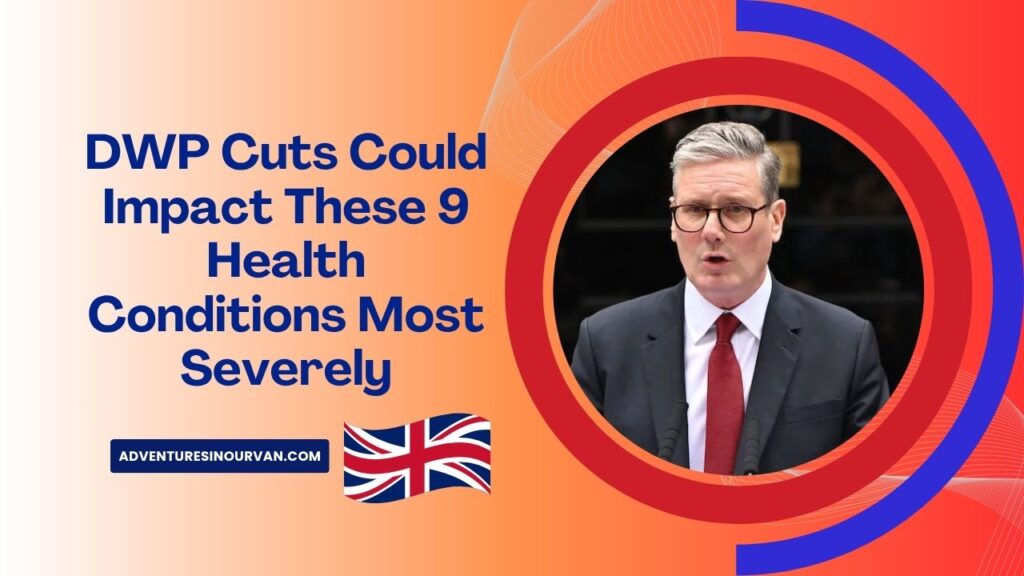As the Department for Work and Pensions (DWP) and the UK Government push forward with welfare reforms, growing concerns are being raised about how changes to Universal Credit and Personal Independence Payment (PIP) will impact people with severe health conditions.
According to anti-poverty charity Z2K, and a recent select committee report, up to nine critical health conditions could be disproportionately affected, potentially reducing financial support by over £200 per month.
What Are the Proposed Reforms?
The government aims to streamline the Universal Credit health element, which currently offers extra financial support to people who cannot work due to illness or disability.
These reforms are designed to encourage more people into employment and reduce welfare spending. However, critics argue that many disabled individuals are being unfairly targeted and could be pushed deeper into poverty.
The Nine Most At-Risk Health Conditions
These conditions have been identified as most vulnerable to the upcoming changes in DWP payments:
| Health Condition | Impact Risk |
|---|---|
| Parkinson’s Disease | Likely loss of up to £200/month support |
| Schizophrenia | May no longer qualify under new criteria |
| Multiple Sclerosis | May struggle with reclassification |
| Bipolar Disorder | Increased risk of reduced financial assistance |
| Autism | Functional assessments could penalise claimants |
| Dementia | Complexity of needs may not be fully recognized |
| Myalgic Encephalomyelitis (ME) | Subjective symptoms may be undervalued |
| Premenstrual Dysphoric Disorder (PMDD) | Condition not widely understood in assessments |
| Eating Disorders | Mental health aspect often inconsistently rated |
The reduction in the health-related premium could particularly affect new claimants who become sick or disabled after April 2026.
Expert Concerns Over DWP Cuts
Ayla Ozmen, director of policy and campaigns at Z2K, warned that many individuals with these health conditions will never be able to work due to the chronic and disabling nature of their illnesses. She said these changes could remove more than £200 a month from people who rely on these benefits to survive.
Labour MP Debbie Abrahams also emphasized that approximately 50,000 newly disabled individuals could fall below the poverty line by 2030 due to these cuts.
Government’s Justification and Counterpoints
The UK Government maintains that these reforms are meant to:
- Rebalance Universal Credit to remove work disincentives
- Provide a safety net for those who genuinely cannot work
- Use £3.8 billion in employment support to help the sick and disabled find secure work
- Lift 50,000 children out of poverty through the revised policy
However, critics argue that the infrastructure needed to support these goals—like additional NHS services and employment support programs—are not yet in place, which makes these cuts premature and potentially harmful.
How Much Could Claimants Lose?
Under the current Universal Credit system, those deemed unfit for work due to health receive an additional £390.06 per month. If this health element is removed or restructured, those with long-term conditions may lose up to £4,680 annually.
While the aim of building a sustainable and incentivized welfare system is understandable, the execution of these reforms raises serious concerns.
Individuals with conditions like Parkinson’s, schizophrenia, or autism may be unfairly penalized, with some pushed into financial crisis. As the government proceeds with the Universal Credit and PIP overhaul, it is vital that a robust support system is implemented to prevent the most vulnerable from falling through the cracks.
FAQs
What is the Universal Credit health element?
It’s an additional payment for people who are too ill or disabled to work, currently worth around £390.06 per month.
Will existing claimants be affected by the cuts?
Most cuts will initially apply to new claimants after April 2026, but future reforms could affect existing recipients too.
Can I appeal if my benefits are reduced due to health changes?
Yes. If your Universal Credit or PIP claim is affected, you can request a Mandatory Reconsideration or appeal to a tribunal.

